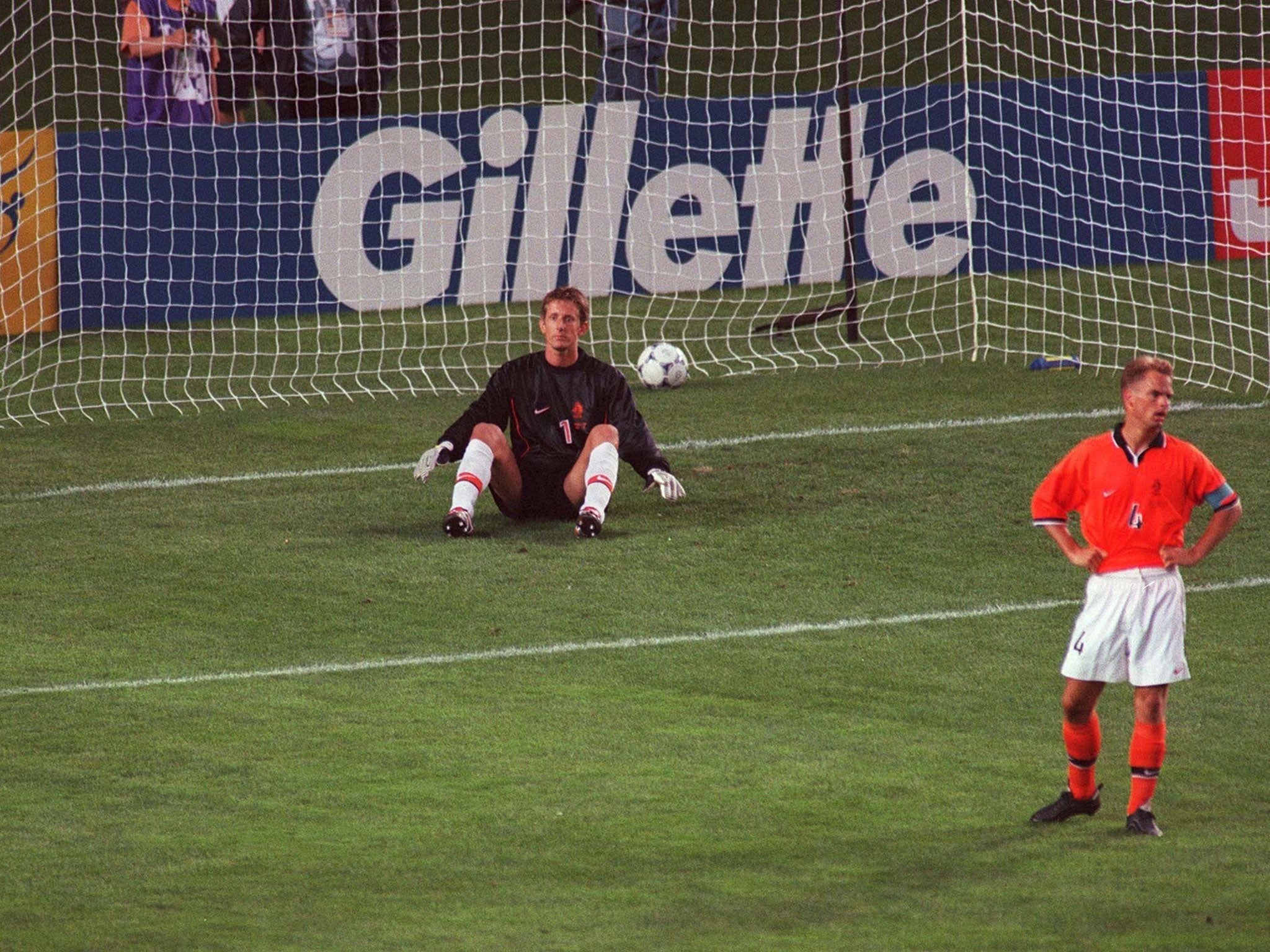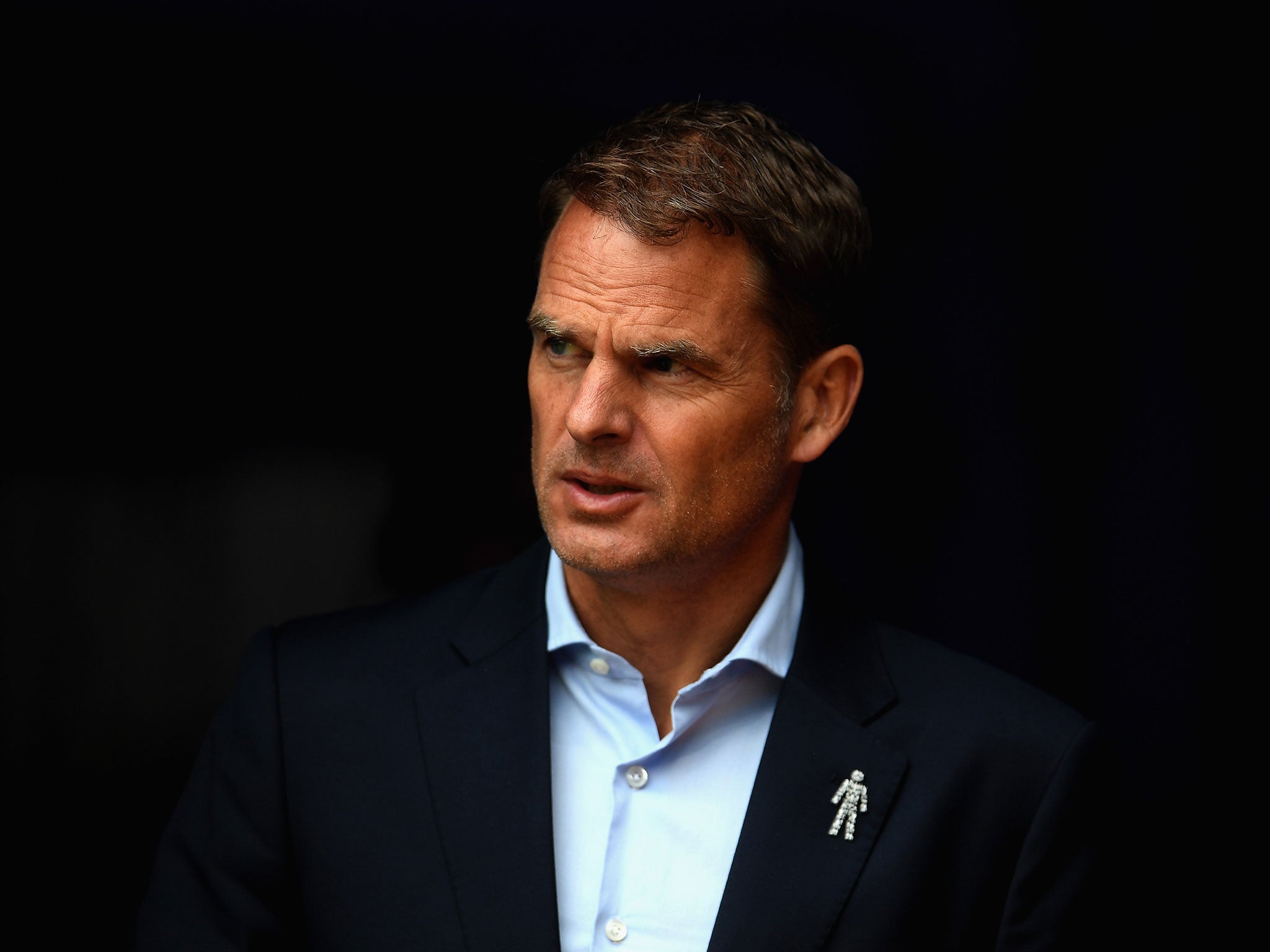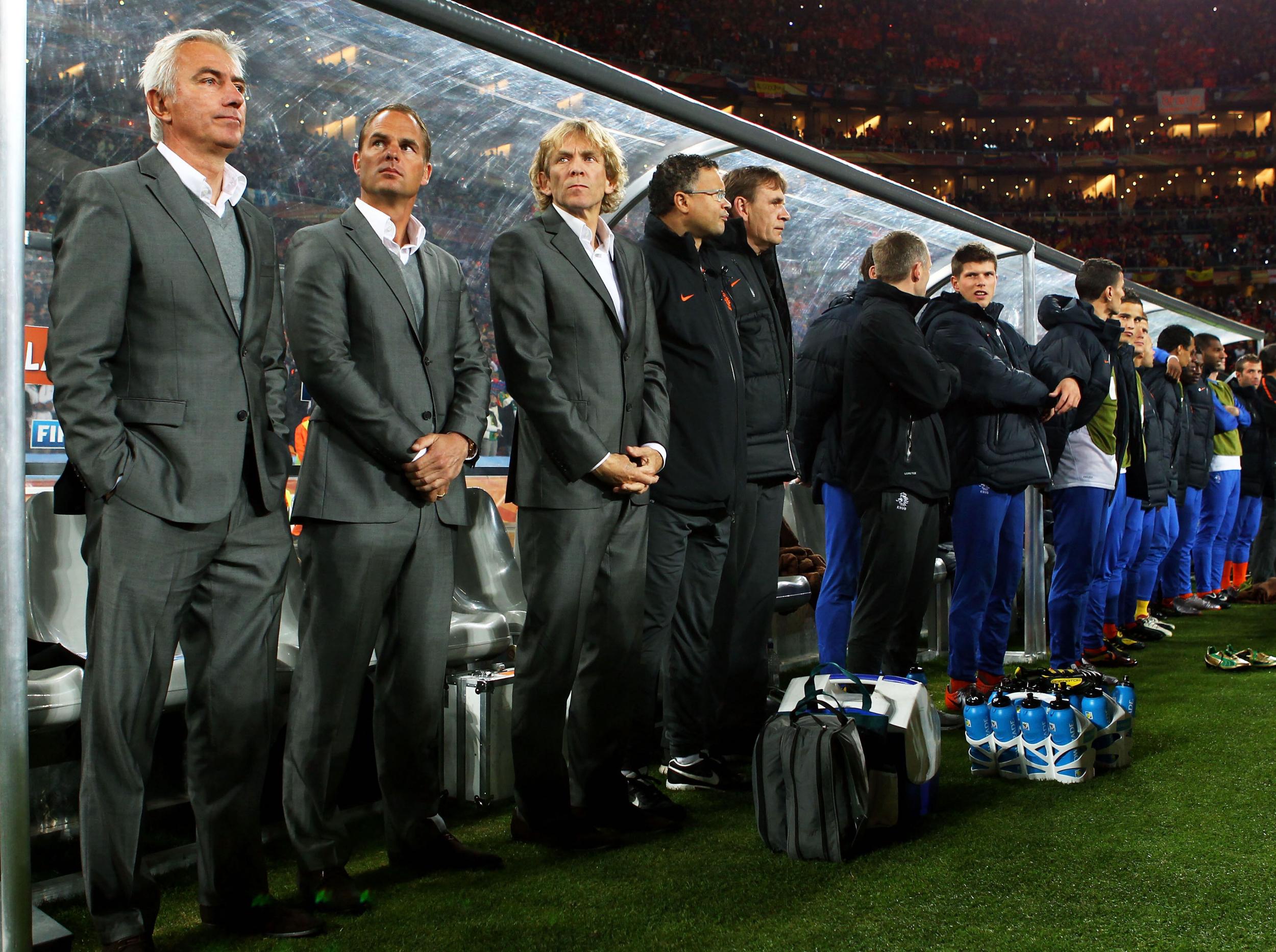Frank de Boer World Cup column: ‘We were as good as anyone at France ‘98, we just didn’t realise it’
In the first in a series of exclusive columns for the World Cup the former Netherlands captain looks back at his fondest memories playing and offers some advice for this year's competing teams
The World Cup is the hardest prize to win in football. You can win the Champions League with money, buying the best player in every position, but you cannot win the World Cup with money. I regret never winning the World Cup, especially in 1998, and I would change my Champions League medal from 1995 for a World Cup one. But I do feel I know more now about what it takes to win.
I was thinking about this just yesterday. When I went to my first World Cup, USA ‘94, I was 24 years old and quite a mature player. I had already played five seasons in the Ajax first team.
But despite that, I don’t think I was focused on what I was really there for, which was playing football.
Because a World Cup is the biggest thing in all sports. The hype around it is enormous. The media attention. The security when you go from the hotel to the plane, especially in the United States. And so with everything else around it, you can get distracted from the reason why you’re there. That World Cup was for myself. I was there, but what I did on the pitch, I don’t remember.
But four years later, in France ‘98, I was a totally different person. From day one, I was only focused on one thing: to show the world who is Frank de Boer.
And I played a fantastic World Cup. The Netherlands reached the semi-finals and I was voted into the All-Star Team for the tournament. That time, I didn’t really care about anything external. Only about performing for myself, and for the Holland team. I was ready to ignore the distractions.
But of course I regret that we did not go on to win the tournament that summer. Only if you are really focused, and if you believe in it, then you can be world champions.

In 1998 we nearly got there. We were outsiders, although we had a fantastic generation of players. But we lost the semi-final 4-2 to Brazil on penalties. And of course we regretted it afterwards. We thought that if we really believed in ourselves, that we were the best, then maybe we would have won that penalty shoot-out. Or even beaten Brazil in regular time.
We were as good as anyone at that World Cup, we just didn’t believe it. I even heard after we were knocked out from France players like Marcel Desailly that they thought they were really lucky that we lost to Brazil, so France could avoid playing us in the final. France thought that we were the strongest team there, along with them. But we just never realised it.
Maybe it was because we were just coming out from Euro ‘96, where we lost 4-1 to England. We had a lot of problems with the coach then, and in the dressing room, but suddenly two years later everything had changed. But to really believe that we were there in France to go for gold, it was just too big a step for us.
What France ‘98 told me is that the most important thing for any team to win the World Cup is not quality, but belief, conviction and focus. That is the strength the Germans always have, the belief that they can beat anybody. Maybe it’s in their genes, because now they’ve won four World Cups.

So this is what I always coach to my players: of course players decide games, but teams always win prizes. And teams win World Cups. Except maybe Diego Maradona in 1986, but even then the rest of the Argentina team believed they had to work for Maradona, so the team was important.
Eight years ago I was Bert van Marwijk’s assistant with the national team at the World Cup in South Africa. And I was determined to convey to the players what I had learned about the importance of mentality from France ‘98.
So I really put these ideas into the team, and above all the word ‘FOCUS’. For Bert, it was the word ‘MISSION’. We were only there to be number one. Playing game by game, but if we won, not getting into that mood where we think ‘fantastic, let’s enjoy this now’. Two hours later, we were focused on the next game.
We played our opening game of 2010 against Denmark in Johannesburg. And before the game, some of the younger players were taking photos with their mobile phones. In the stadium and on the pitch. So I said to the senior players to get the youngsters to put their phones away. We were there to perform, not to be tourists. This kind of thing helps you to get everybody on board with that mission.
Or I remember one time we had an evening off in Johannesburg. Phillip Cocu - who was also part of Van Marwijk’s staff - and our two wives went to a roof-top bar to relax and enjoy some South African white wine. Three players, Mark van Bommel, Arjen Robben and Dirk Kuyt where there too, with their wives, a few metres away from us.

I raised my glass to make a toast with them, and they love wine, but they were only drinking water. They made the ‘tunnel vision’ sign with the two hands either side of their face: we are in the tunnel, focused on the next game. They really understood what we meant as a staff. They couldn’t get distracted or get a bit relaxed now. From day one, we were only there to make the best of the World Cup, and we did, reaching the final.
In truth, we did not play well at that World Cup. Not at all! In the World Cup qualifiers we were fantastic, but at the World Cup we weren’t fantastic. But we just had so much confidence in ourselves that we still got to the final.
Maybe in all the seven games we played, we played one hour of fantastic football in total. And the rest was just normal. But we had a good organisation, we believed in ourselves, we knew our plan. And we could have won the final against Spain. It was just the toe of Iker Casillas who saved from Arjen Robben. So we were a little bit unlucky, and Spain were just too good for us. But still, we could have won, and with how we played, and with that team, that was an unbelievable achievement.
So if I was giving advice to a team like Belgium this time - another outsider with a talented generation - it is the same. They have a really good team, but they have to understand what it means to play a World Cup, for every game to count, to reach the end. Are they really ready to focus? Are they only in Russia to win it, and not only to participate? Because if in one game or even one moment you are not really focused, it could be the end of your tournament. Every second counts.
Join our commenting forum
Join thought-provoking conversations, follow other Independent readers and see their replies
Comments
Bookmark popover
Removed from bookmarks